Next Topic
Select SDGs to find out how we are taking action in support of the UN Substinable Development Goals
2021 ISRAEL CHEMICALS LTD. | ALL RIGHTS RESERVED

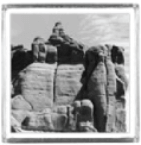
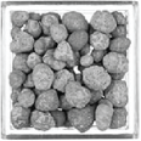
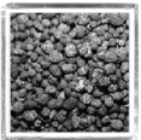
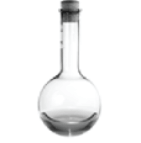

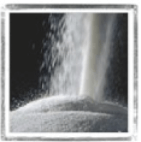
Phosphate fertilizer is necessary for healthy plants and agricultural production.
ICL’s subsidiary, ICL Rotem, mines phosphate at Rotem and Zafir (Oron- Zin) in the Negev Desert. The phosphate rock is processed in plants located at Mishor Rotem into fertilizers (phosphorus is a vital plant nutrient) as well as numerous other products used by the food, cosmetics, skin care, dental products, detergents, light-emitting diodes (LED) industries and others.
3 Mining Sites
3 Beneficiation Plants
12 Production Plants
1,200 Direct Employees
Developing Circular Economy Initiatives at ICL Rotem
While ICL Rotem’s core activity is producing phosphate based products from phosphate rock, the Company has taken upon itself and is dedicating resources to find new opportunities for re-usage of by-products and waste streams by industry partners
Read MoreICL Rotem mines phosphate rock from phosphate deposits in the Negev desert in accordance with two mining concessions from the State of Israel which are valid until the end of 2021. ICL is working to renew these concessions. In addition, ICL Rotem has two lease agreements in effect until 2024 and 2041 and an additional lease agr
ICL Rotem mines phosphate rock from phosphate deposits in the Negev desert in accordance with two mining concessions from the State of Israel which are valid until the end of 2021. ICL is working to renew these concessions. In addition, ICL Rotem has two lease agreements in effect until 2024 and 2041 and an additional lease agreement related to the Oron plant.
ICL’s existing phosphate mines in the Negev desert hold limited reserves of phosphate rock designated for phosphoric acid production. It is why ICL is promoting mining activities in the Barir field to enable the continuation of its mining activities, following the depletion of existing reserves.

The Campanian (Upper Cretaceous period) phosphate rock deposits in Israel are part of the Mediterranean phosphate belt extending from Turkey, through Jordan and Israel, and westward through Egypt, Tunisia and Morocco. Mining in the Negev utilizes conventional open pit or quarrying methods, using drilling and blasting where necessary, hydraulic excavators and rigid freight trucks or bulldozers with rippers for overburden removal and front-end loaders and trucks for mining phosphate. ICL is careful to minimize the impact of its mining activities through responsible planning that allows for continuous reclamation of depleted mine blocks alongside ongoing mining operations.
Phosphate rock from the Rotem mine is transported by truck to Mishor Rotem where ICL Rotem operates plants to process sulphuric acid, green phosphoric acid , white phosphoric acid, superphosphate, granular fertilizer and MKP as well as an oil shale combustion plant to produce electricity and steam. ICL also operates beneficiation plants at both the Oron and Zin mines which produce high‑grade, multi‑purpose phosphate products, most of which is used to produce phosphoric acid and fertilizers. The remainder of the raw material is sold to other phosphoric acid and fertilizer producers and some is sold for direct application as fertilizer.
ICL Rotem works according to a long-term strategy for planning and managing its mining of phosphate deposits in the Negev. This policy includes conducting comprehensive geological surveys, examining alternatives to mining, defining long-term goals for mining, and sustainable mining.
Read More
In 2017 ICL Rotem experienced a significant environmental incident in which approximately 100,000 cubic meters of acidic phosphogypsum liquid were released into the surrounding environment as a result of a breach in a detainment pond. The Company took immediate action to stop the flow out of the breached pond, in full coordination with the Ministry of Environmental Protection and the Israel Nature and Parks Authority (INPA). Following a multi-year cleanup and monitoring effort in which ICL took a leading role, the creek was declared safe for hikers and re-opened to the public by the Israeli authorities in June 2020.
Read More
